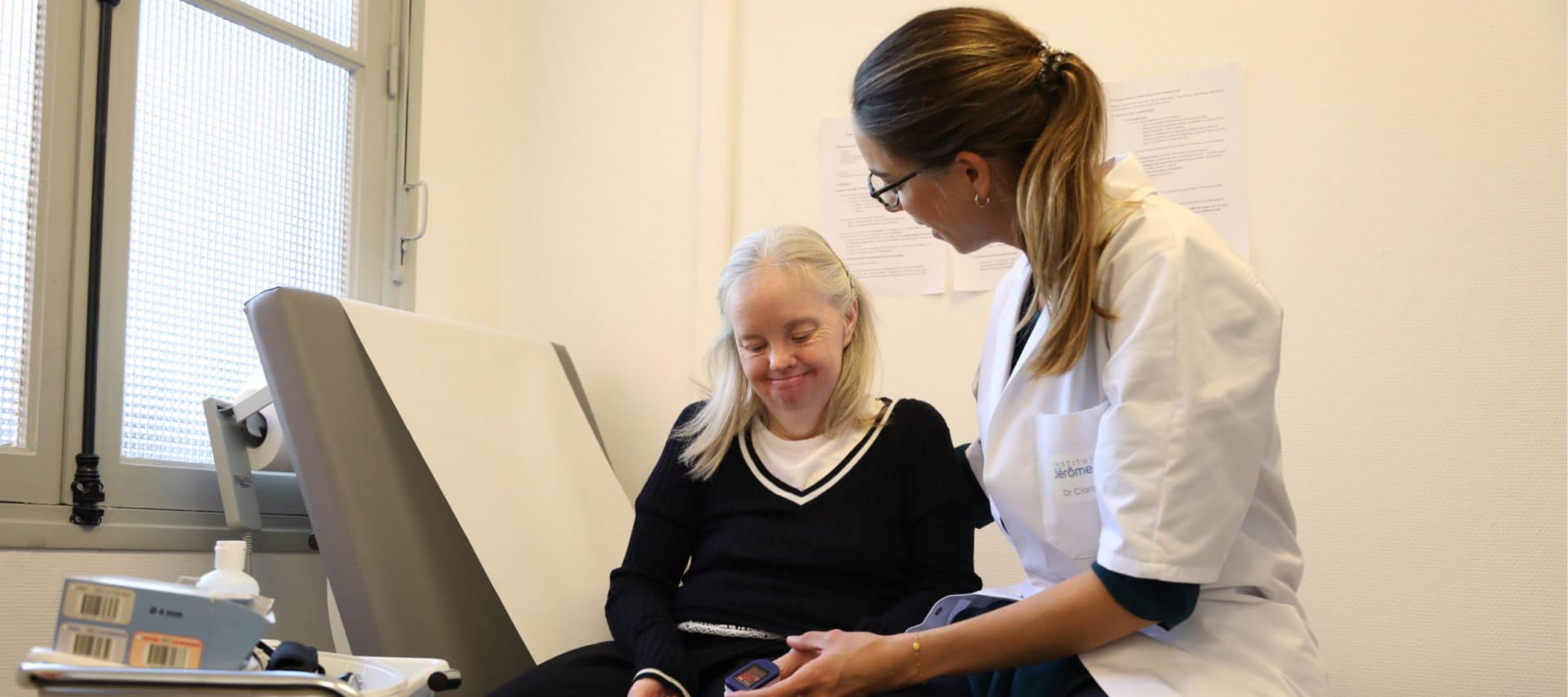People with trisomy 21 have a higher risk of developing Alzheimer’s disease.
Why? Because the β-amyloid protein that accumulates in the brain of people with Alzheimer’s disease is produced by the APP gene on chromosome 21. People with trisomy 21 have an additional chromosome 21: since the APP gene is overexpressed, they therefore produce excess β-amyloid protein.
Everyone with trisomy 21 is affected by these biological events since it is a genetic predisposition. There is nevertheless a great variation in these patients’ age at the onset of symptoms, ranging from 40 to over 70 years old. This suggests that genetic, biological and environmental factors may contribute to aggravating or slowing down the disease’s progression.
Early changes linked to Alzheimer’s disease are especially difficult to detect in adults with trisomy 21 due to their intellectual disability. It is therefore essential to identify the factors involved in the disease’s progression to enable early diagnosis and to develop effective treatments, for people with trisomy 21 and for everyone affected by the disease.

